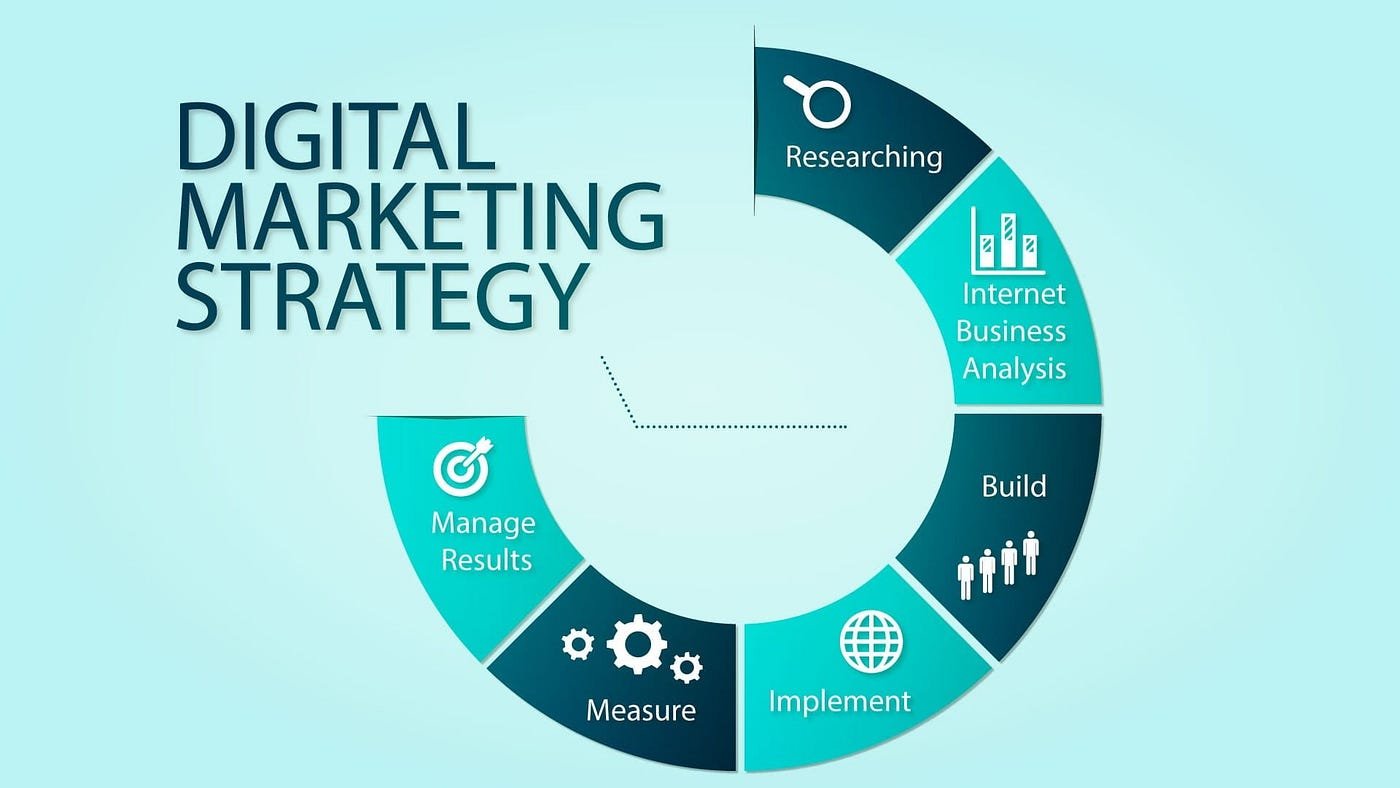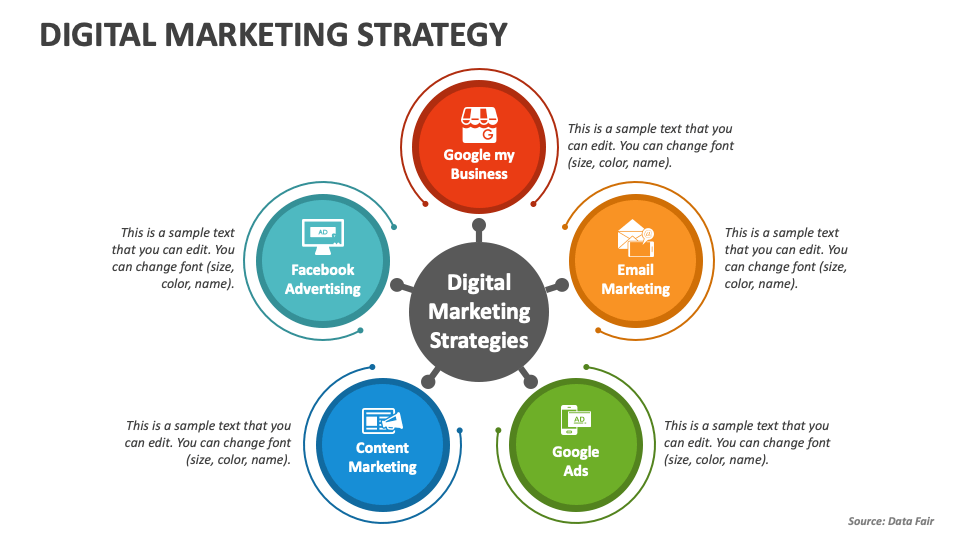
Digital Marketing Strategy
A digital marketing strategy is a comprehensive plan that outlines the goals, tactics, and channels to be used in leveraging digital platforms to achieve marketing objectives. It involves targeting, engaging, and converting online audiences through various digital marketing techniques. Here’s a complete guide on what digital marketing strategy is and how to create one:

- Set Clear Objectives: Start by defining your marketing objectives. Are you looking to increase brand awareness, drive website traffic, generate leads, or boost sales? Clearly outline your goals to guide your digital marketing strategy.
- Identify Target Audience: Understand your target audience’s demographics, behaviours, interests, and online preferences. This information will help you create targeted campaigns and choose appropriate digital channels to reach them effectively.
- Conduct Competitor Analysis: Analyze your competitors’ digital marketing activities to identify their strengths, weaknesses, and opportunities. This analysis can provide insights into successful tactics and strategies you can leverage or differentiate from.
- Choose Digital Marketing Channels: Select the most suitable digital channels to reach your target audience. Consider options such as search engine optimization (SEO), search engine marketing (SEM), social media marketing, content marketing, email marketing, influencer marketing, and display advertising.
- Develop Content Strategy: Create a content plan that aligns with your target audience’s interests and preferences. Determine the types of content (blog posts, videos, infographics, etc.) and topics that will resonate with them. Aim to provide value, solve problems, and engage your audience.
- Optimize for Search Engines: Implement SEO techniques to improve your website’s visibility on search engines. Conduct keyword research, optimize on-page elements (titles, headings, meta tags), create quality content, and build relevant backlinks to increase organic search traffic.
- Leverage Social Media: Develop a social media strategy tailored to your target audience and business goals. Choose the platforms where your audience is most active, create engaging content, interact with users, and utilize social media advertising to reach a wider audience.
- Plan Paid Advertising Campaigns: Consider paid advertising channels like Google Ads, social media advertising platforms, or native advertising networks to boost visibility, drive traffic, and generate leads. Set clear campaign objectives, target specific audience segments, and continuously monitor and optimize your ads.
- Implement Conversion Optimization: Focus on optimizing your website and landing pages to maximize conversions. Use persuasive design elements, clear calls-to-action (CTAs), and A/B testing to refine your user experience and increase conversion rates.
- Monitor and Analyse Performance: Utilize digital analytics tools to track and measure the performance of your digital marketing efforts. Monitor key metrics such as website traffic, engagement rates, conversions, and ROI. Use these insights to refine your strategy and make data-driven decisions.
- Stay Updated and Adapt: Digital marketing is constantly evolving, so it’s crucial to stay informed about the latest trends, technologies, and industry changes. Continuously assess and adapt your strategy to stay competitive and deliver the best results.

